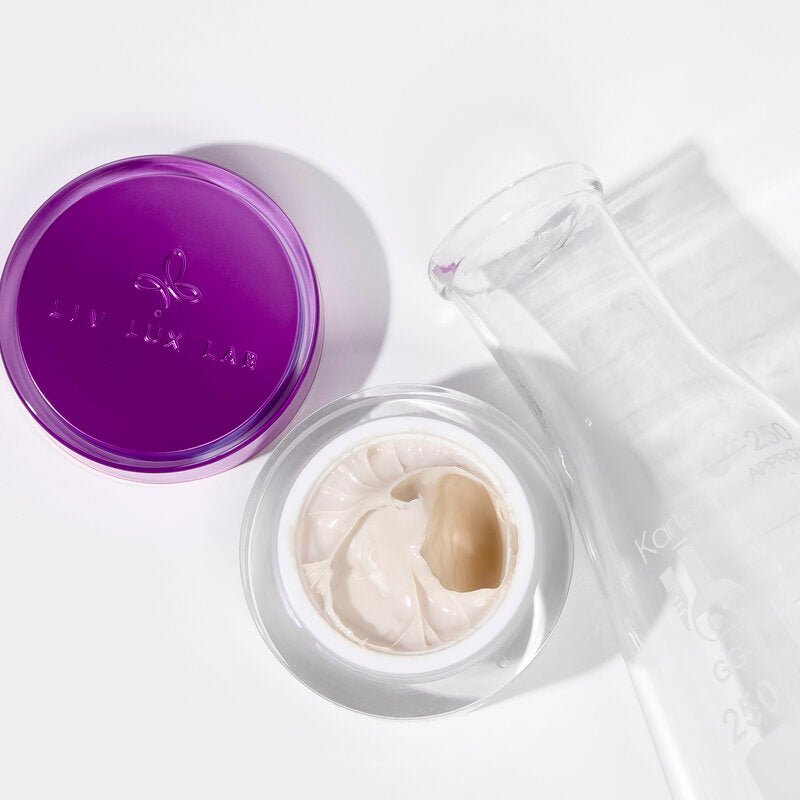Stress is high with the impact of the COVID-19 pandemic, inflation and the Russia-Ukraine crisis which has affected mental health worldwide. According to the 2022 results of a 'Stress in America' poll by the American Psychological Association, stress and mental health statistics in the US are worsening.
Individuals with chronic + long-term stress are at a higher risk for a variety of health problems, including depression and anxiety as well as problems with digestion and sleep. Chronic stress has also been linked a reduction in hair growth and even resulting in hair loss (alopecia). Hair loss related to stress is usually temporary, however managing stress effectively is crucial for impacting the hair follicle stem cells.
The hair growth cycle involves three stages: the growth stage (anagen), the resting phase (catagen), and the shedding phase (telogen). The hair growth cycle is driven by stem cells that reside in the hair follicle. In the growth stage, stem cells divide to become new cells to regenerate the hair, whereas in the resting phase, the stem cells are inactive. Until now, researchers hadn’t determined exactly how chronic stress impaired hair follicle stem cells.
Hair Loss Related to Stress
A team led by Dr. Ya-Chieh Hsu at Harvard University studied the underlying mechanisms that link stress and hair loss, finding that mild stress over many weeks of increased corticosterone levels, corticosterone inhibited hair regrowth. They found that the stress hormone was not regulating stem cells directly. By deleting the receptor for corticosterone from different cells, they determined that the hormone acts on a cluster of cells underneath the hair follicle called the dermal papilla.
Further studies revealed that corticosterone prevented the dermal papilla from secreting GAS6, a molecule they showed can activate hair follicle stem cells. Delivering GAS6 into the skin restored hair growth in mice fed corticosterone or undergoing chronic stress.
Fortunately, if the hair loss is strictly due to the stress, complete recovery often occurs after several months to a year. If you’ve been affected by hair loss from stress, here are some important steps you can take:
Eat a Balanced + Nutritious Diet
A balanced, nutritious diet of whole foods is necessary for the health of your body — as well as your hair. The hair is one of the last places the body designates resources to, so it is important to include all of the essential vitamins in a healthy diet, however there are some that may be vital to hair growth:
- Vitamin C is an essential vitamin for building collagen, the skin’s connective tissue that is found in hair follicles. Foods that contain rich sources of vitamin C include citrus fruits, broccoli, bell peppers, and strawberries.
- Vitamin B is a complex of many vitamins promotes a healthy metabolism, as well as healthy skin and hair. B vitamins can be found in leafy greens, beans, nuts, and avocados.
- Vitamin E contains potent antioxidants, which can contribute to a healthy scalp. Foods rich in vitamin E include fenugreek seeds, sunflower seeds, spinach, olive oil, broccoli, and shrimp.
Stress Management
How you handle stress can have an impact on hair loss. Learning how to effectively manage your stress levels may help you reduce your risk for further hair loss.
- Exercising is a great way to reduce stress and boost endorphins. Aim for daily movement by taking a light daily walk, going on a bike ride, or doing some yard work.
- Hobbies you enjoy can help relieve stress! Consider giving back to your community through volunteer work, planting a garden, or starting a creative project.
- Writing + Journaling are effective stress management techniques that help relieve feelings of stress. Reviewing the daily items that trigger your stress may help you to discover new ways of coping and reducing stress.
- Breathing + meditation are great ways to allow yourself to be mindful and focus on the present moment. Yoga or tai chi are great techniques to try that combine meditation with physical exercise.
Topical Treatments
Topical treatments are an effective way to help with hair loss. Topical creams, oils, and other products
- Topical Minoxidil (Rogaine) is an over-the-counter (OTC) medication FDA approved for hair growth. Although it isn’t clear how minoxidil works, it’s thought to prolong the growth phase. There are variations formulated specifically for male or female use, and it can be applied to your scalp, eyebrows, or beard up to twice daily. It may not work for everyone, and results may take up to four months to see any changes.
- Topical corticosteroids are topical OTC and prescription corticosteroids, like prednisone, are sometimes used to treat alopecia areata. They’re often used alongside other treatment options.
- Fenugreek Seeds are a popular natural remedy to treat hair fall issues (hair loss + hair shedding). One small study in Cosmetic Medicine, which included 53 people, found that 300 milligrams of fenugreek seed extract over six months seemed to improve hair density and strength. The powerful compounds found within fenugreek seeds have been shown to offer numerous hair and scalp benefits. Our patent-pending and Ayurveda inspired technology, Fenugen, eco-extracts organic fenugreek seeds into an encapsulated complex, proven to be five times more potent in these antioxidant rich plant compounds and polyphenols.
Fenugen was formulated to treat the whole ecosystem of hair (nourishing the hair follicles, scalp + hair strands) to deliver added nutrition specifically for for providing an optimal environment to support hair growth. Unlike other options on the market, SAVE ME FROM is clinically proven and compatible with most hair care lines to recover hair loss from stress, postpartum hair loss and boost overall hair health.
The bottom line
Stress related hair loss can be managed if the hair follicles haven’t been permanently damaged. Effectively managing stress and taking good care of your health could result in your hair returning to a normal rate of growth.
If OTC measures aren’t working — or you aren’t seeing results — see your doctor. They can help diagnose the reason for your hair loss and advise you on any next steps. If regrowth is possible, they can help determine the best treatment plan for your hair loss symptoms.



